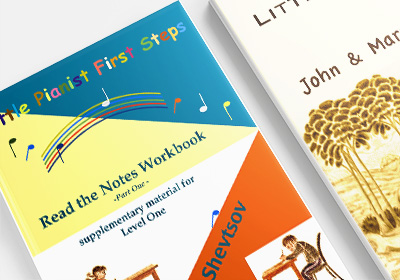INTRODUCTION
“Musical training is a more potent instrument
than any other, because rhythm and harmony
find their way into the inward places of the soul…”
Socrates
Few people would dispute that music enriches their everyday experience. It evokes memories and stirs emotions; its healing powers are also well known. Whether enjoying a concert, listening to a favourite recording, or playing an instrument, we turn to music as a source of pleasure and inspiration.
Music can also play a pivotal role in a child’s development. Numerous studies continue to demonstrate the benefits of an early childhood music education. The research, which has focused on the impact of group music classes as well as private lessons, indicates that children who begin music studies at an early age not only have a greater appreciation and knowledge of music throughout their lives, but also exhibit accelerated cognitive and emotional development.
Notwithstanding this conclusive research, parents often find themselves weighing the merit of music classes over other recreational activities. The cost, time commitment and logistics involved in scheduling piano lessons are just a few of the factors that parents tend to think about when looking at their families’ busy and over-scheduled lives. However, as with any decision, it’s important to compare the short-term costs versus the long-term benefits.
As a teacher and a perpetual student of music, I urge you to consider some compelling reasons why you might want your child to learn to play the piano.
Music lessons and regular practice instil in children the diligence, concentration and perseverance often required to accomplish more ambitious tasks later on in their lives. Do you want your children to have the focus and determination required to achieve their goals? Encourage them to learn how to play the piano!
Playing the piano requires multi-tasking and adaptability. Children learn how to integrate advanced fine motor movements and adjust their playing, based on their musical decisions. All performers, regardless of age, must learn to control, listen to, and evaluate their playing, often before an appreciative audience. The capacity to meld these skills – playing, evaluating and decision-making during a performance – gives young children confidence in their abilities.
Visit: pianosheetmusicone.com/product-category/books-about-music/ to have a complete book.


